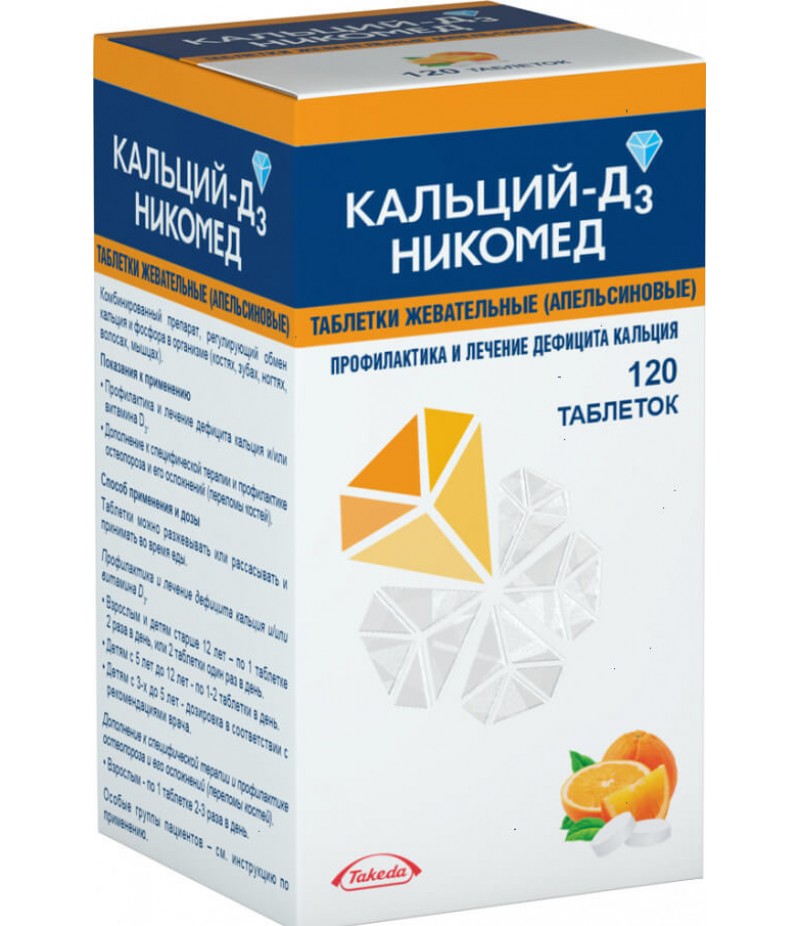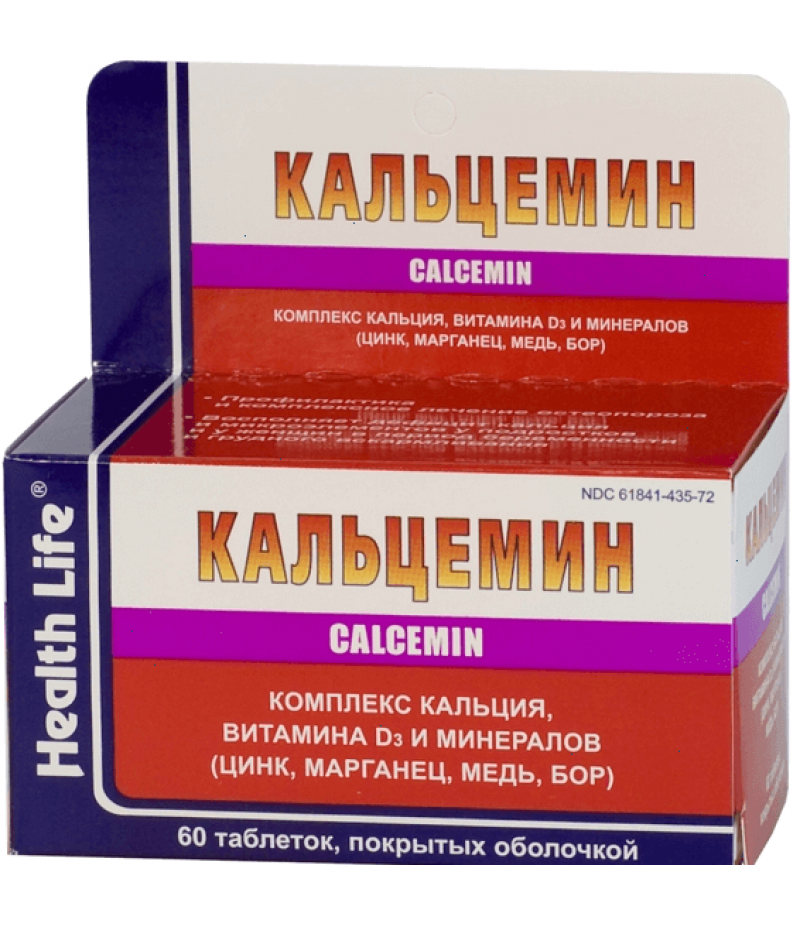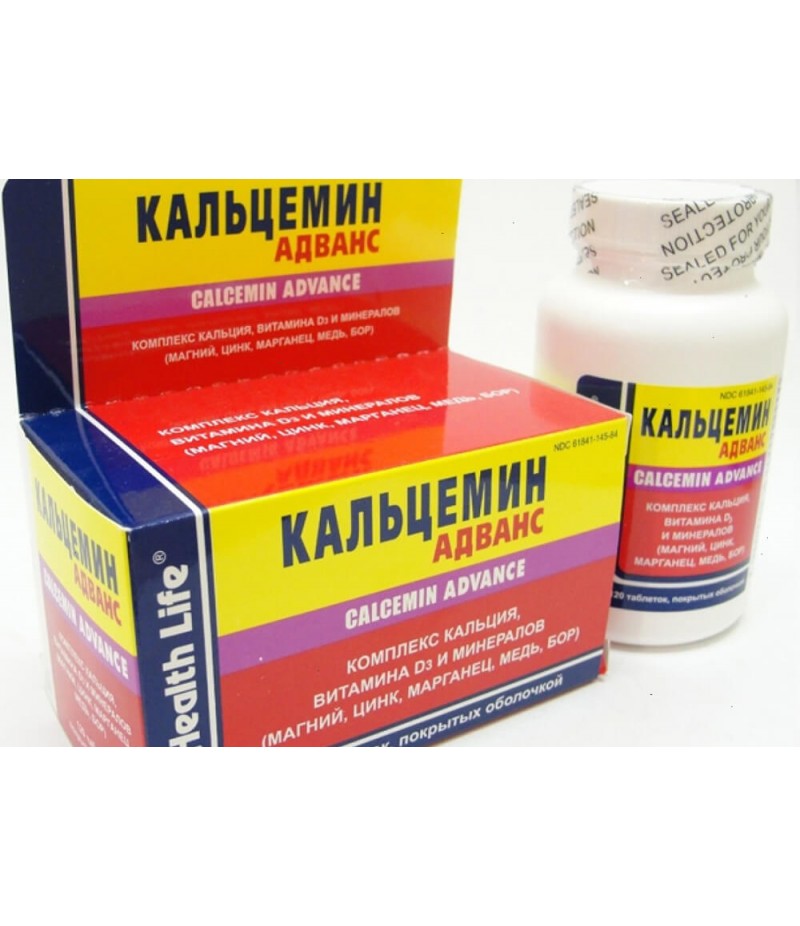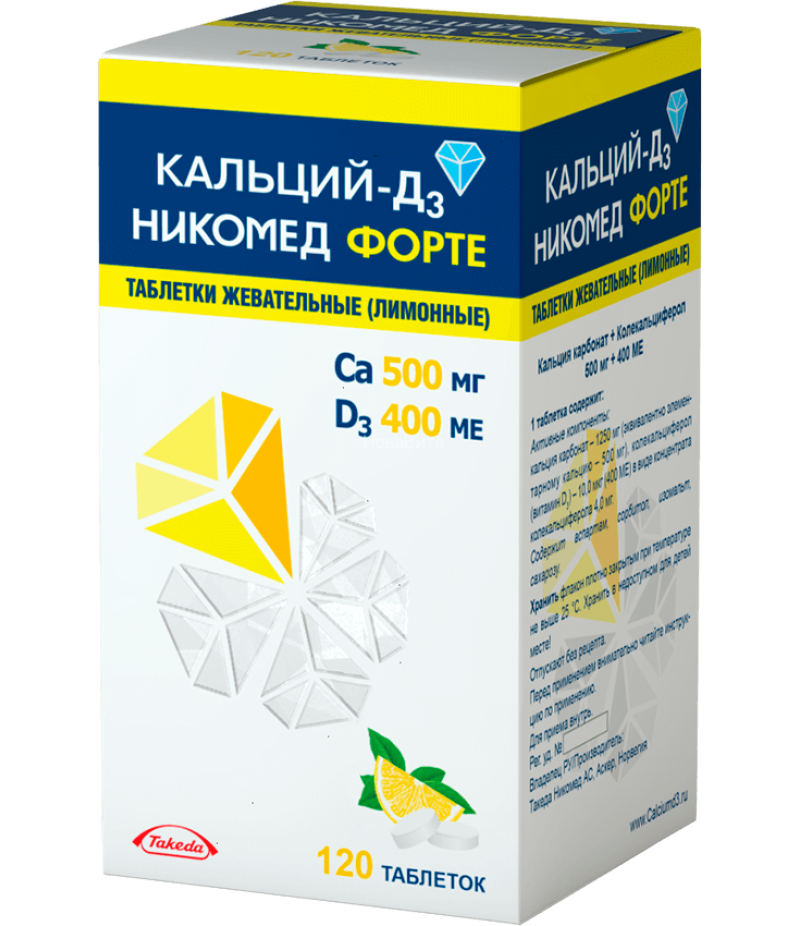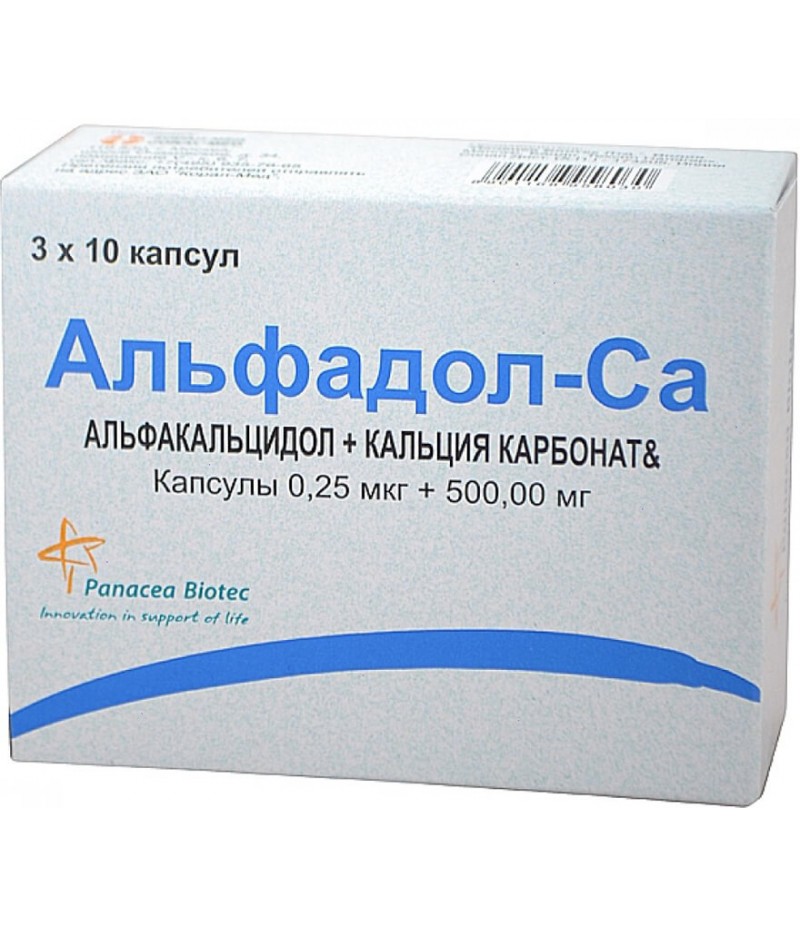Calcium-D3 Nycomed tabs #120
- $30.95
- 3 or more $29.64
- Availability:In Stock
Calcium-D3 Nycomed instructionYou can buy Calcium-D3 Nycomed on this pageIngredients Calcium D3 NycomedComposition of 1 chewable tablet: calcium carbonate - 1250 mg (in terms of elemental calcium - 500 mg); ..
Tags: tabs
Calcium-D3 Nycomed instruction
You can buy Calcium-D3 Nycomed on this page
Ingredients Calcium D3 Nycomed
Composition of 1 chewable tablet:
calcium carbonate - 1250 mg (in terms of elemental calcium - 500 mg);
cholecalciferol - 5.0 μg, which corresponds to 200 international units;
sorbitol - 390 mg;
isomalt - 62.0 mg;
povidone - 36.4 mg;
magnesium stearate - 6.00 mg;
aspartame - 1.0 mg;
Orange oil in the amount of 0.97 mg or mint flavor additive weighing 31.9 mg;
mono and diglycerides of fatty acids - 0.0008 mg.
Form of issue
Orange or peppermint chewable tablets Calcium D3 Nikomed white without shell, biconvex, round in shape with a corresponding aroma. It is allowed to have small dot inclusions and uneven edges. Packed tablets in bottles of high-density polyethylene for 20.50 or 100 pieces. The carton pack contains 1 vial of medicine and an annotation to the drug.
pharmachologic effect
The drug refers to a combination of pharmaceutical drugs that regulate the exchange of calcium and phosphorus in the body and make up for the deficiency of the basic structural element. The biochemical role of calcium lies in the physiological construction of bone tissue, the mineralization of the teeth, the processes of coagulation and transmission of the nerve impulse, the implementation of muscle contractions. In response to its increase in the systemic blood flow, bone density increases, and calcium excretion by the kidneys decreases.
Cholecalciferol is responsible for the absorption of the element in the gastrointestinal tract and its distribution in the body. Oral administration of the drug inhibits the synthesis of parathyroid hormone - the natural hormone of the parathyroid gland, which largely influences the phosphoric-calcium metabolism. Accordingly, the amount of absorbed calcium from the digestive tube increases and its resorption (washout) from bones and other organs decreases.
Pharmacodynamics and pharmacokinetics
Calcium is absorbed from the proximal part of the digestive tube in an amount of 30% of the dose taken, after which the element enters the systemic circulation, where 50% is in the active ionized form, that is, the active substance binds to citrates, phosphates, albumin and some other anions and protein structures . Eliminated the main building component of the intestine, sweat glands and kidneys. When calculating excretion, it should be borne in mind that renal excretion of calcium depends not only on glomerular filtration, but also on tubular reabsorption.
Vitamin D3 is absorbed mainly from the small intestine, from which about 80% of the dose taken enters the mainstream, where it binds to a specific transport globulin. Metabolism cholecalciferol includes two stages - first the vitamin is converted by hydroxylation into 25-hydroxycholecalciferol, after which, getting into the kidneys, it is transformed into the active form - 1,25-hydroxycholecalciferol. Unchanged vitamin is stored by the body in muscle and adipose tissue. The cholecalciferol is excreted by means of both the vomiting and the intestine.
Indications for use
prevention and comprehensive treatment of osteoporosis;
deficiency of calcium and / or vitamin D3;
fractures of bones.
Contraindications
Absolute contraindications to the use of a pharmaceutical:
hypervitaminosis D;
hypercalcemia - increased calcium in the blood;
hereditary intolerance to fructose;
immobilized patients;
hypercalciuria - the appearance of calcium in the urine;
glucose-galactose malabsorption;
nephrolithiasis and other diseases, in the pathogenesis of which the formation of calcareous calculi is noted;
active form of tuberculosis;
kidney failure;
phenylketonuria;
sarcoidosis;
sucrose-isomaltase insufficiency;
hypersensitivity to the constituent components of the drug or to food such as soy and peanuts;
children under 3 years.
Side effects
From the side of metabolism: hypercalcemia and hypercalciuria.
From the gastrointestinal tract: constipation (constipation), flatulence, dyspepsia, nausea, abdominal pain, diarrhea.
From the skin and subcutaneous tissue: rash, itching, urticaria.
Instructions for Calcium D3 Nycomed (Method and Dosage)
Instructions for use of the pharmaceutical preparation indicate that the drug is used orally, and it is necessary to chew or dissolve tablets during meals. For the prevention of osteoporosis, dosage is used Calcium D3 Nycomed: 1 tablet 2 times a day or 2 tablets once a day. For the purpose of complex therapy of this pathological condition, one tablet of Ca D3 Nycomed is taken 3 times a day. The duration of such treatment is appointed individually, based on the biochemical parameters of metabolic processes and the state of bone tissue, teeth and skin derivatives (hair and nails).
For the elimination of deficient conditions, the duration of the course of treatment is at least 4-6 weeks, and the dosage necessarily takes into account the age category of the patient:
children from 3 to 5 years - 1 or ½ tablets per day;
from 5 to 12 years - 1-2 tablets a day;
adults and adolescents over 12 years - 1 tablet 2 times a day.
Overdose
In case of an overdose of a pharmaceutical drug, symptoms develop that indicate hypercalcemia:
anorexia;
dry mouth, thirst;
muscle weakness;
nausea and other dyspeptic disorders;
polyuria;
pain in the bones;
mental disorders;
nephrocalcinosis;
urolithiasis (with a prolonged increase in the concentration of calcium in the blood);
cardiac arrhythmias (in especially severe cases);
calcification of soft tissues;
organic kidney damage.
If symptoms of excess calcium and vitamin D3 are detected, the drug, thiazide diuretics and cardiac glycosides should be discontinued immediately (the pharmacokinetics of the therapeutic properties are indicated in the "Interactions" section) and consult your doctor. As a rule, "loop" diuretics are prescribed for therapeutic purposes (the drug of choice is Furosemide), oral glucocorticosteroids, calcitonin, bisphosphonates. In case of an overdose, the following physiological parameters should be monitored:
the content of electrolytes in blood plasma;
Functional ability of the kidneys and diuresis;
central venous pressure;
electrical activity of the heart.
Interaction
With the combined use of Calcium D3 Nycomed and cardiac glycosides, potentiation of the toxic effect of the latter is possible, therefore, when it is necessary to simultaneously use them, careful monitoring of electrocardiography and calcium concentration in the blood is recommended.
Calcium can reduce the absorption capacity of antibiotics of the quinoline and tetracycline group, as well as levothyroxine, sodium fluoride, bisphosphonates, therefore, these preparations should be taken no earlier than 2 hours before or 6 hours after using drugs based on the physiological "builder" of the bone system of the body.
Glucocorticosteroids, barbiturates, laxatives, phenytoin and cholestyramine reduce the bioavailability of the oral therapeutic agent, that is, the active ingredients are absorbed in the gastrointestinal tract in smaller quantities, therefore, it is necessary to correct the dosage or scheme of calcium intake D3 Nycomed with a conservative reorganization involving combination of the drug with other pharmaceutical products.
Thiazide diuretics in pharmacy are sometimes called saving drugs, as pharmaceuticals of this series inhibit tubular reabsorption of calcium and some other micro- and macroelements, which requires regular monitoring of calcium in serum to avoid hypercalcemia and overdose.
The use of foods that contain oxalates (sorrel, potatoes, spinach, rhubarb) or fitin (most crumbly cereals), reduces the ability of calcium to be absorbed in the gastrointestinal tract, therefore, the day's diet should be adjusted in a special way. Do not take a pharmaceutical product for four hours after eating any of the foods listed above.
Storage conditions
Keep the medicine in a tightly closed bottle in a dry and inaccessible place for children. Temperature regime - not above 25 degrees Celsius.
Shelf life - 3 years
special instructions
Brief information about the manufacturer
Nycomed is a Swiss pharmaceutical company founded in the distant 1874 with headquarters in Zurich, and is widely known for such medicinal products as Pantoprazole, Actovegin and Calcium D3. Until a certain time, it was among the 30 largest corporations in the world in terms of sales in the market of conservative therapeutic agents. In September 2011, it was purchased by the Japanese company Takeda, one of the areas of interest which are metabolic diseases and their correction with the help of medication. Because the official site of Nycomed is now represented by an Internet resource under Takeda's management.
Influence of the pharmaceutical drug on the spheres of everyday life
Calcium D3 Nycomed is a combined drug with a designated selectivity of therapeutic action, that is, the active components of chewable tablets and their auxiliaries do not affect the ability to concentrate, prolonged attention, or other areas of daily life. During the course of treatment, self-management of vehicles and work with technical complex mechanisms are permitted.
Analogs Calcium D3 Nycomed
The drug belongs to the group of combined drugs for the regulation of the calcium level in the blood and the content of the structural element in the tissues of the body. Of course, there are various analogues of chewable tablets. As a rule, the preparations are represented directly by the biogenic component and auxiliary substances in order to more fully realize its therapeutic properties. So it should be noted:
Complivit - mainly used for children's age category to prevent calcium deficiency;
Natalik D3 - used in idiopathic progressive calcium deficiency and its complications in the form of fractures of bones or dental problems.
These medications are prescribed if there are any absolute or relative contraindications to Calcium D3 Nycomed, for example, with increased sensitivity to its ancillary components, to avoid drug allergy or the development of adverse effects of conservative therapy. The price of analogues of Calcium D3 Nycomed is, as a rule, higher, which gives a definite advantage to this pharmaceutical agent for correction of phosphoric-calcium metabolism.
Calcium D3 Nycomed for children
In childhood, the metabolic progressing diseases are especially hard to tolerate, since the young organism is still at the stage of development and the stock of compensatory-adaptive mechanisms has not yet been fully formed. Deficiency of calcium and vitamin D is one of the most urgent problems described by pediatric orthopedics, because due to this pathological insufficiency, a large number of severe nosological units can be formed up to a delay in mental and physical development, so it is important to undergo regular medical examinations and timely correct all diagnosed disorders .
How to take Calcium D3 Nycomed for children should be accurately recognized by the treating pediatrician, because his dosage is selected individually taking into account the current level of calcium, blood, parathyroid hormone concentration and some other biochemical parameters.
The standard scheme of conservative therapy involves the appointment of 1 tablet 1-2 times a day at the age of 5 to 12 years, and adolescents over the age of 12 years - 1 chewable tablet 1-3 times a day. It should be understood that an overabundance of a pharmaceutical preparation, like its deficiency, can lead to adverse effects described in the section "Overdose".
With alcohol
Abuse of alcoholic beverages is a frequent cause of scarce conditions, since alcohol promotes the washing out of micro- and macroelements, as well as vitamin structures from tissues and organs, so harmful habits should be completely ruled out for the period of conservative treatment with calcium-based chewable tablets. As a preventive measure, it is recommended to limit to a considerable extent the share of alcoholic beverages, caffeine and smoking in the future.
Calcium D3 Nycomed in pregnancy and lactation
Insufficiency of micro- and macro elements for pregnant women is a common condition, because a woman's body provides not only her own needs, but also supplies the necessary structural "bricks" for the normal organization of the child's tissues and organs. Especially often there is a deficiency of calcium - one of the main components of the skeleton, muscle organs and nervous system, but it is difficult to digest, so it is recommended the use of special drugs that compensate for the state of insufficiency. Medicines are prescribed if the following symptoms of calcium deficiency occur during pregnancy:
back pain;
numbness of upper and lower extremities;
hair loss and brittle nails;
tooth decay;
cramps in the legs.
Calcium D3 Nycomed in pregnancy is the drug of choice for replenishing the deficiency of the structural element in the mother's body. First of all, the drug in a relatively short time allows you to eliminate the shortage of calcium and restore the pathologically altered functions of the body. It should also be noted that the oral form of eating chewable tablets is more physiological and to a lesser extent can cause any side effects or adverse consequences for the woman and her unborn child.
Tablets Calcium D3 Nycomed can also be used in breastfeeding, but it should be taken into account that the active constituents of the pharmaceutical preparation have the ability to penetrate into breast milk during lactation, and therefore it is necessary to accurately relate other sources of calcium and vitamin D intake to the newborn. When appointing Calcium D3 Nycomed, a young mother should learn the symptoms of hypervitaminosis and hypercalcemia in a small child in order to stop using the drug on time.
Reviews of Calcium D3 Nycomed
Combined drug is widely used for many reasons. First of all, patients undergoing therapeutic courses using Calcium D3 Nycomed note the convenience of the drug, the more chewable tablets are produced with flavors, which makes their reception really enjoyable. Also, feedback is filled with gratitude due to the speed of clinical effects - in a relatively short period of time, patients no longer suffer from dental and bone pain (characteristic symptoms of osteoporosis), and the rehabilitation period, even after the most severe fractures, is reduced to a minimum.
Comments of doctors and other qualified specialists also positively characterize this drug. First of all, of course, because of the rationality of using active ingredients in cooperation, because vitamins and calcium exercise together their therapeutic abilities much better than separately. Pharmacokinetic abilities of chewable tablets, their favorable effects and the speed of their onset allow one to call Calcium D3 Nycomed one of the best drugs in its field.
Special attention deserves feedback about Calcium D3 Nycomed Forte, a form of a drug with an increased amount of vitamin component. Of course, the majority of those who used this variation of the drug agree that its effectiveness is higher, because an order of magnitude more calcium is absorbed from the gastrointestinal tract. However, there is also the opinion that there is a limit of the absorptive capacity of some elements, and therefore an increase in the dosage of cholecalciferol does not give the expected results.

